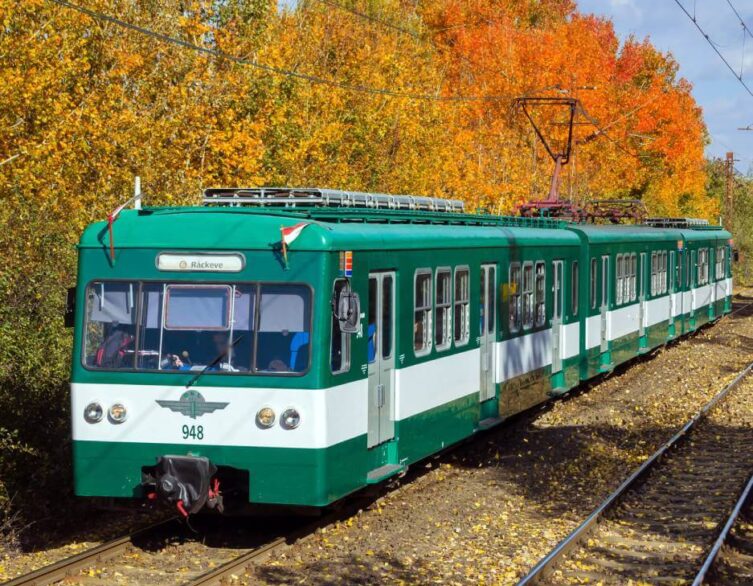Budapest Faces Potential Reduction in HÉV Services Due to Government Plans

Budapest, the vibrant capital of Hungary, is currently grappling with a transportation crisis as the government plans to reduce the number of vehicles servicing several HÉV lines in the city. HÉV, short for Helyiérdekű Vasút, is a suburban railway system that connects Budapest with its surrounding suburbs and plays a crucial role in the daily commute of thousands of residents. The proposed reduction in services has sparked outrage among city officials and residents alike, who fear the move will lead to overcrowding, longer wait times, and a decline in the quality of life for those who rely on public transportation.
The Government’s Plan
According to reports, the government, through the state-owned company MÁV-HÉV Zrt., is planning to significantly reduce the number of trains operating on the Ráckeve (H6), Gödöllő (H8), and Csepel (H7) HÉV lines during peak hours. The proposed cuts range from 12% to 23%, which would result in a substantial decrease in passenger capacity. The government’s justification for this move is the aging fleet of trains, many of which are over 50 years old and in need of replacement or extensive repairs.
Opposition from City Officials
The proposed service reduction has been met with fierce opposition from Budapest’s city officials. Mayor Gergely Karácsony has been vocal in his criticism of the government’s plan, stating that it is “unacceptable, unprofessional, and unsustainable.” He argues that the state’s failure to invest in new trains and infrastructure should not come at the expense of Budapest’s residents. The mayor has also pointed out that while the city has made significant investments in modernizing its bus and tram fleet, the state-owned MÁV-HÉV has allowed its trains to deteriorate, despite having a much larger budget.
Potential Consequences
Experts warn that the proposed service reduction could have severe consequences for Budapest and its surrounding areas. Ádám Bodor, the director of mobility development at the Budapest Transport Center (BKK), has stated that the cuts would lead to a significant decline in the quality of service for passengers, as well as an increase in individual car traffic and environmental pollution. He estimates that the proposed changes could result in overcrowding of up to 90% on some lines, far exceeding the ideal maximum of 70% during peak hours.
Best deals of Budapest
The increased overcrowding and longer wait times may also force many commuters to opt for driving instead of using public transportation, further exacerbating Budapest’s already congested roads. This shift towards individual car use would be particularly problematic, as the city has been working to promote sustainable transportation and reduce its carbon footprint.
A Call for Action
As the debate over the proposed HÉV service reduction continues, city officials and residents are calling on the government to reconsider its plans and invest in the modernization of the aging fleet. Dávid Vitézy, a city council member and former CEO of BKK, has emphasized the need for immediate action, stating that the government should prioritize the restart of HÉV projects and vehicle procurement instead of systematically dismantling the city’s rail transport.
Mayor Karácsony has also urged the government to fulfill its responsibilities and work alongside the city to improve public transportation, rather than placing the burden on Budapest’s residents. He has made it clear that the city will not accept a situation where it is forced to choose between sacrificing the commutes of residents in different districts due to the state’s failure to adequately maintain and upgrade the HÉV system.
Conclusion
As Budapest faces the prospect of reduced HÉV services, the city finds itself at a crossroads. The government’s plan to cut services due to an aging fleet has been met with strong opposition from city officials and residents who argue that the state’s failure to invest in public transportation should not come at the cost of the city’s livability and sustainability goals. As the debate continues, it is clear that finding a solution that prioritizes the needs of Budapest’s residents and the modernization of its transportation infrastructure will be crucial in ensuring the city’s future prosperity and quality of life.
Image source: MÁV-HÉV Zrt.












